UMMC education offerings grow by a few degrees
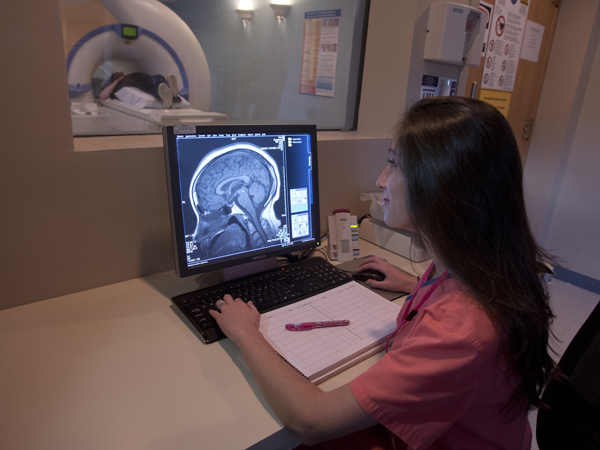
Published in News Stories on December 17, 2015
The University of Mississippi Medical Center is proud to announce that it will add four new master's degree programs to its 2016-2017 academic offerings.
The School of Health Related Professions will add Master of Science programs in magnetic resonance imaging (MRI) and nuclear medicine technology (NMT), while the School of Graduate Studies in the Health Sciences will add Master of Science programs in clinical investigations and pathology The Board of Trustees of State Institutions of Higher Learning approved the programs on Nov. 19.
All four programs will be the only ones of their kind in Mississippi and are expected to help meet the needs of the state's clinical workforce. UMMC projects that the new offerings will enroll more than 100 students during the first six years.
School of Health Related Professions
Both of the new SHRP programs are within the Department of Radiological Sciences, said Dr. Mark Gray, associate professor of radiologic sciences and associate dean of SHRP.
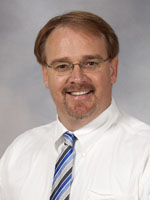
Gray
“MRI and NMT are two specialized disciplines within the larger imaging profession,” Gray said. Having a specialized credential or an advanced degree opens up more job opportunities for imaging professionals.
Dr. Jessica Bailey, Dean of SHRP, said that the NMT program transferred from the hospital to SHRP in 2010. Hospital administration approached SHRP in 2013 to create the MRI program.
“We developed both programs based on the needs of our state,” Bailey said.
Master of Science in Magnetic Resonance Imaging
MRI is a technique used to view inside the human body using radio waves and a large magnet. The Bureau of Labor Statistics predicts that the United States will need 37,000 MRI technologists by 2022.
The new MRI degree will replace the current post-baccalaureate certificate program.
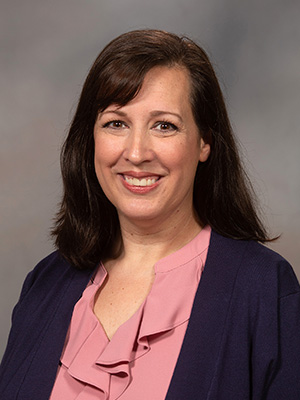
Students will be exposed to a variety of clinical applications, said Asher Street, instructor in radiologic sciences and program director, including cardiac and fetal MRI, as well as sedation and anesthesia techniques for claustrophobic patients.
“No other hospitals around Jackson do these procedures. UMMC is leading the way in offering these specialized MRI procedures,” Street said.
Street is in the process of completing her doctorate in health administration at SHRP.
“We're not content to remain stagnant at SHRP,” Street said. “The MRI program will provide formally educated technologists with a deeper understanding to meet the demands of advancing technology.”
Master of Science in Nuclear Medicine Technology
“Nuclear medicine uses tiny, diagnostic amounts of radioactive material as miniature cameras to produce data for images of the body,” said Dr. Sherry West, assistant professor of radiologic sciences and program director.
Since the transfer of NMT to SHRP, rapid advances in technology, research and molecular imaging led to the program's transition to a master's degree.
Nuclear medicine can be used to image anything in the body and is frequently used to detect cancer at the molecular level early in its development, West said.
MRI and NMT will continue their current coursework and add research and thesis components. Both 12-month, full-time programs are designed for registered radiologic technologists.
The programs are looking for students with a bachelor's degree in radiologic sciences and strengths in math and physics, as well as chemistry for NMT. In addition, students should have great communication skills.
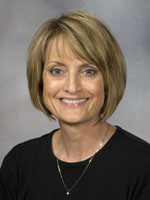
West
“Our graduates will be a bridge of communication between physicians and patients,” West said.
Each program will enroll up to eight students who will start in June 2016. The programs are “small by design,” Street said, in order to facilitate one-on-one training. Equipment, resources and available clinical space also limit enrollment.
SHRP anticipates that approximately 60 students will complete the master's degree in either MRI or NMT over the next six years. These professionals will be a vital part of meeting patient's healthcare needs throughout Mississippi, Street said.
“We are very excited about our future and the addition of these two new programs at SHRP,” Bailey said.
School of Graduate Studies in the Health Sciences
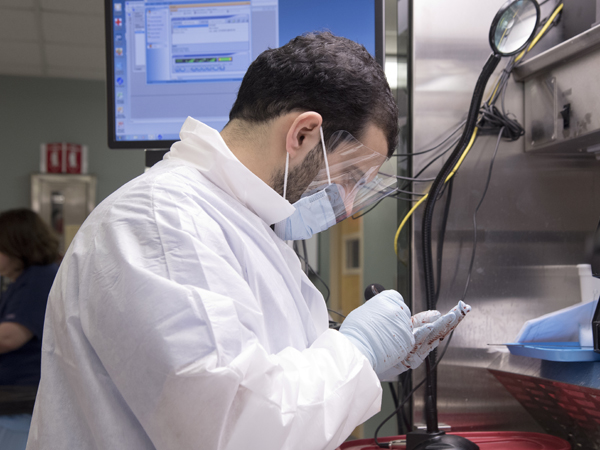
Dr. Anas Bernieh, first-year pathology resident, examines specimens in the surgical pathology lab. Students in the new pathology master's degree program will complete rotations in this lab and others at UMMC.
Dr. Joey Granger, Dean of the School of Graduate Studies, is excited about the new degree offerings in his school.
“These programs will help us in achieving our goal of advancing clinical research at UMMC,” Granger said. “I'm delighted and looking forward to the implementation of the new programs.”
Master of Science in Clinical Investigations
Clinical investigators are physicians and other health care practitioners who conduct research in a health-care setting. Most of Mississippi has a shortage of such professionals and the new program will help meet the state's need for trained clinicians.
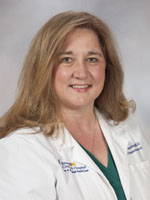
Herrington
“One of our goals is to develop clinicians who can train others in the future,” said Dr. Betty Herrington, associate professor of pediatrics and program director.
Applicants should have or be pursuing a terminal clinical degree, Herrington said, such as physicians, dentists, nurses and other professionals. The two-year, part-time degree will allow them to continue working in their field while gaining skills to advance their careers.
The degree has three track options: clinical trials, translation-human research and population outcomes research. Students will be paired with an experienced research mentor. By the end of the program, students will complete and submit NIH R01, K or similar grant applications for their capstone project. Funded grants will allow these investigators in training to conduct and sustain their research.
The clinical investigations degree has gained lots of interest from UMMC faculty, Herrington said. “The most difficult challenge is being limited in the number of students we can admit.”
Two to four students will be admitted to the program when it commences in Aug. 2016. Herrington hopes to grow the program in coming years.
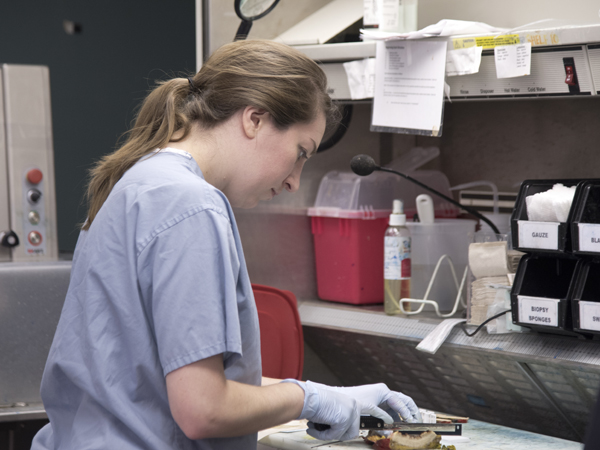
Dr. Katie Tumminello, third-year pathology resident, works in the surgical pathology lab.
Master of Science in Pathology
Pathology is the study and diagnosis of disease, particularly in tissue samples. According to UMMC, the United States will need more than 5,700 newly trained-pathologists over the next 15 years. The current medical school curriculum spends only a few weeks covering the topic as a possible career and offering a master's degree will allow interested students to cover the topic more thoroughly.
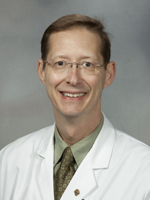
Daley
“The practice of pathology is vastly different from the subject of pathology (as a class),” said Dr. William Daley, professor of pathology and program director.
Students will take coursework in pathology as well as complete rotations in areas like surgery, autopsy and different body systems under the supervision of professors and residents.
UMMC currently offers a one-year fellowship in pathology, typically taken after the second year of medical school. The non-thesis master's degree will replace the program.
Only two medical students or physicians will be able to enroll in June 2016, but Daley hopes to increase class sizes in coming years. All pathology students will receive a stipend and scholarship during the period of study.
“I'm thrilled we've had so much support for the program,” Daley said.


